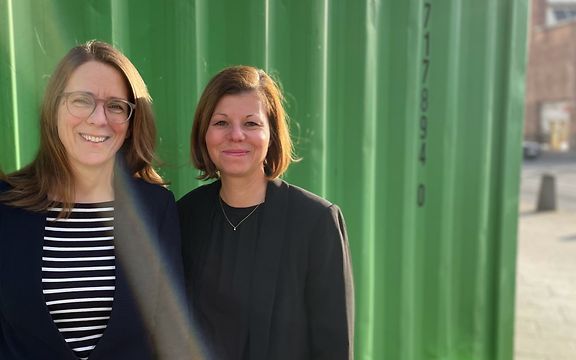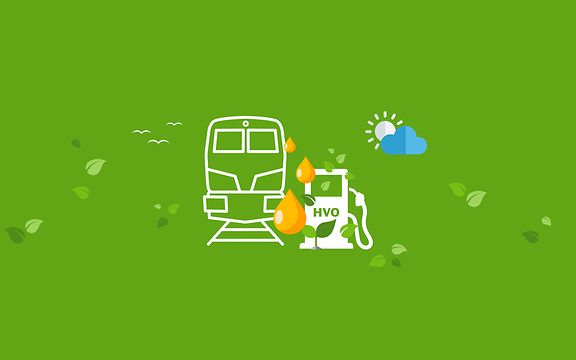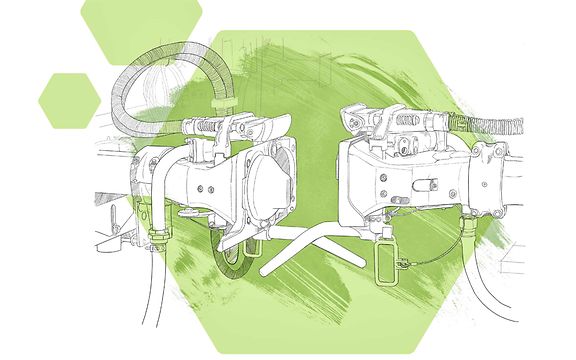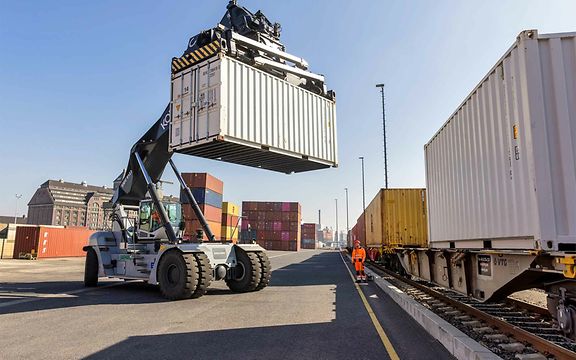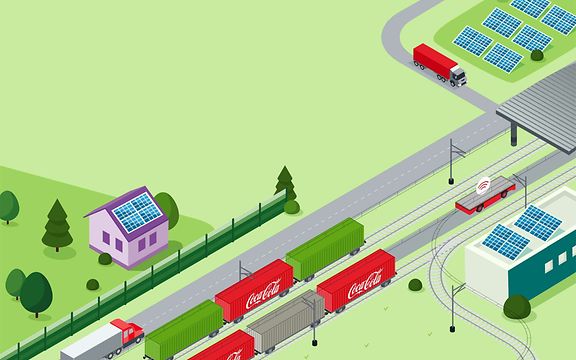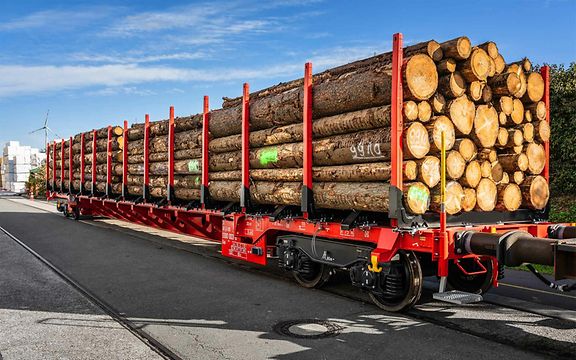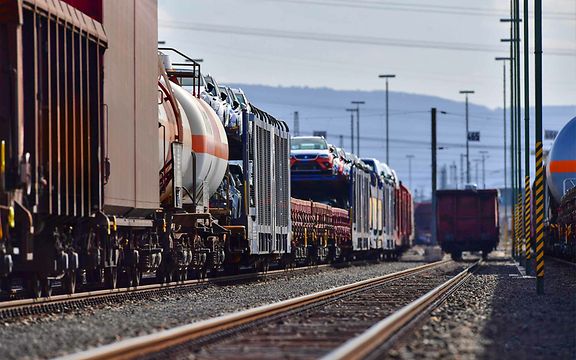Interview: the project team removing contaminated soil from Frankfurt Airport
Birgit Gehr, the managing director of BLUES talks about pressure points, environmental footprints and positive lessons.
Birgit, how important are sustainable freight logistics to you?To start with, within the logistics sector, we consider it extremely important to work with specially licensed and approved companies. We have found a reliable and capable partner in DB Cargo. At the same time, companies in the waste disposal sector also have to move large quantities of freight, both on a national and international level. Reducing traffic levels in the road transport spot market will therefore play a major role going forward. Finally, nobody – from waste producers to disposal specialists – can ignore the sustainability-related considerations in play here. After all, environmental footprints will soon be treated as goods to be bought and sold.
What was the biggest pressure point related to this project's waste logistics?In this project, it was the challenge of removing the large quantities of contaminated material excavated every day without causing around-the-clock traffic chaos at the construction site. If you think about the number of lorries we would have needed for this project, we would have had to work with many different freight forwarders. Coordinating all of this would have meant far more work for our project manager Sophie Kloepfer. Because we work with DB Cargo, we have access to consistent service in terms of quality, reliability and timing, with a dedicated team of professionals overseeing everything.
Why did you choose DB Cargo for this project?One reason was because we wanted centralised coordination for the project's logistics, combined with the effectiveness of a door-to-door product on the rails. In this regard, DB Cargo surprised us with their flexibility and very straightforward project handling. In our work together, we have also substantially improved the environmental footprints of everyone involved in the project. This kind of improvement is not necessarily a given these days.
What goals have you set for the future?Our common goal is to join forces so we can use rail services to transport even larger volumes from the entire spectrum of mineral wastes and residues, both on a national and international level. The tremendous expertise DB Cargo has in the field of handling and managing waste products by train can help us create more efficient and sustainable logistics services for our processing and treatment plants, as well as for other disposal processes. One thing we now know is that logistics can be both cost-efficient and sustainable.
